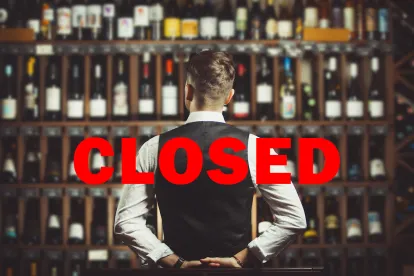The number one question a business wants to know is "do we have coverage for losses due to COVID-19?" This depends on a company's policies and the claims being brought forth. For your reference, below is a brief synopsis of the types of losses/claims and the related applicable insurance policies.
Business Interruption (First-Party Claim). To the extent a company has suffered a slowdown or suspension of its operations, the company's Commercial Property insurance should be reviewed. If the policy is triggered, it should cover lost profits and the company's expenses incurred during the slowdown (extra expense). The key, though, is to trigger the policy, which can only be done if there is actual damage to the company's covered property (so-called "direct physical loss"). A person infected by COVID-19 inside of the company's property could be enough to trigger the policy. Many exclusions exist on the property policy and one to look out for is the mold/bacteria/virus exclusion, for obvious reasons.
Bodily Injury (Third-Party Claim). The company's General Liability insurance should be reviewed and may be triggered (providing a defense and indemnity under Coverage A) if a negligence claim is made against the company for failing to adequately protect against the spread of COVID-19 that results in bodily injury. The General Liability policy may also be triggered under personal injury (Coverage B) if an individual were to claim it was the company's fault he or she was quarantined (false imprisonment). Companies must be on the lookout for potential policy exclusions, such as contaminant/pollutant, mold/bacteria, and even communicable diseases (communicable diseases are rarely included on General Liability policies).
Event Cancellation (First-Party Claim). To the extent a company is planning an event, it will want to review all event related contract(s) including, venues (hotels, convention facilities, etc.) exhibitors, entertainers, audio/visual, food service, etc. to determine its ability to terminate the contracts without financial repercussion. Many contracts offer protection under a force majeure clause which limits a company's liability due to events beyond its control. The language of such clauses should be carefully reviewed to determine the scope of coverage. Typically for large events, such as trade shows, a company will purchase Event Cancellation insurance. This policy is typically triggered when an event is cancelled due to forces outside of the company and/or venues' control. It is imperative to assess the Event Cancellation policy in order to determine reimbursements for lost income and expenses incurred due to the cancellation of the event.
Companies facing potential or actual losses on account of COVID-19 should consult with legal counsel who specialize in insurance coverage. The first step is to determine your company's potential liabilities, as well as cancellation penalties, followed by an in-depth review of your company's Commercial Property and General Liability policies to determine coverage.
*Other insurance policies, such as Workers' Compensation, Directors & Officers (D&O), and Errors and Omissions (E&O), may provide coverage for COVID-19-related claims as well.




 />i
/>i

